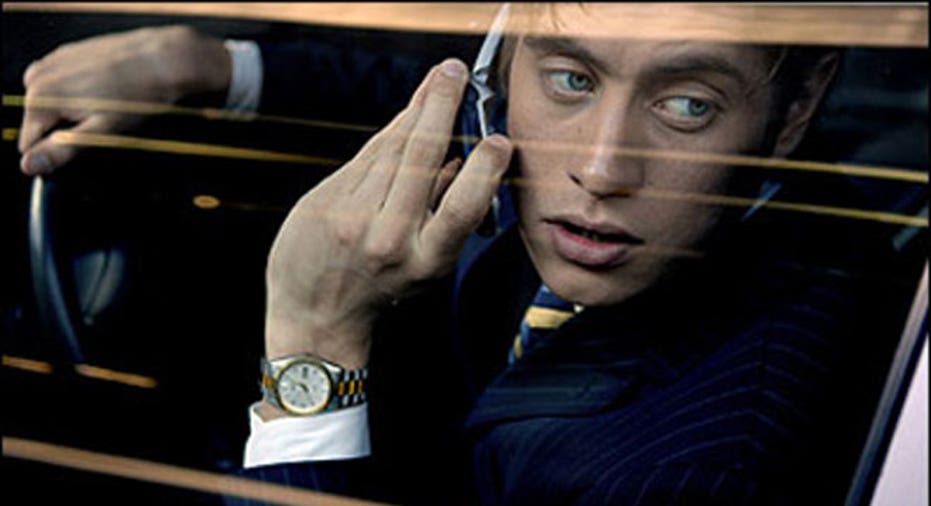911 While Driving: Are You Covered?

A medical emergency can be scary on its own, but if one happens when you're driving, the consequences can be devastating.
The most common examples of a medical emergency that can cause someone to have a car accident are a stroke, a heart attack, a seizure or a diabetic coma when the condition had not been diagnosed, says Robert Passmore, senior director of personal lines for the Property Casualty Insurers Association of America (PCI).
If you have a medical emergency and hit someone else's car
If you have a medical crisis behind the wheel, your insurer may not be required to pay a bodily injury liability or property damage claim.
"Insurance regulations vary from one jurisdiction to another, but if you have a sudden emergency and it causes an accident, then there's the potential that you [and your car insurance company] won't be held liable for property damages," says Tony Noviello, an assistant vice president with Amica Mutual Insurance Co.
Many states allow a medical emergency as a defense against liability claims, but the driver must prove that he or she hasn't had previous health problems, says Passmore.
"The rules of negligence apply," he says. "For example, if someone is a diabetic who hasn't taken insulin and goes into a diabetic coma, then that's different, because the person should have been taking medication."
An insurance company will check to see that the driver had no indication that there was a potential risk of that particular health emergency, says Noviello. "There's some gray area in the case of someone who potentially shouldn't have been driving, so typically the insurance company will look into the health records of the driver before denying liability," he says.
Pete Moraga, a spokesman for the Insurance Information Network of California, says that while your insurer may not be required to pay a claim for damage to someone else's car or property if you have a medical emergency, typically your required coverages will kick in. "I've never seen that term 'unforeseen medical emergency' used to deny a claim," says Moraga. "Generally, the driver's property and bodily injury liability coverage are in place to protect other drivers, and it's mandatory in every state but one." (See: "Understanding state minimum car insurance coverage.")
Moraga says if an insurance company denies a claim, consumers can contact their state insurance department to request assistance.
If you experience a medical emergency and damage your own car
If you damage your own car during a medical emergency, for example, by running into a sign pole, the cost to repair the vehicle will be covered by your collision insurance if you have it. While liability insurance is mandatory in all states other than New Hampshire, says Passmore, comprehensive and collision insurance are optional. (See: "Something to hold on to: comprehensive and collision insurance.")
"A lot of people, especially if they have an older car, choose not to pay for collision and comprehensive coverage, but you need to be prepared to pay for your own repairs or to get yourself a new car," says Passmore. "If you have collision insurance, you'll have to pay whatever deductible you chose. When you're buying car insurance, you need to look at both sides of the equation: If you want to save on your premiums by eliminating coverage or choosing a high deductible, you need to be prepared to pay if something happens."
If you are hit by a driver who has a medical emergency
If you own a car that's damaged by someone else, normally your repairs will be paid for by that driver's liability insurance. However, if a driver had a medical emergency and the driver's insurance company decides the driver isn't liable for the incident, your collision coverage will pay for the repairs.
"If you don't have collision insurance and the other driver's insurance company denies the claim for liability insurance, you have the right to pursue the case in court," says Noviello.
Passmore says that in order to get legal action taken against the other driver you would have to prove that the driver had some prior notice of his or her medical condition.
Car insurance after a medical emergency
Moraga explains that insurance follows the car, not the driver, so it's possible to continue to have car insurance on the vehicle even if you cannot drive it anymore. Depending on the nature of the medical emergency, a doctor may recommend that you don't drive anymore.
In some cases your state department of motor vehciles may revoke your driving privileges. In that case, your car insurance company could continue to provide coverage for the car while excluding you from coverage. The insurance would be in place to allow other people such as family members or caregivers to drive your car. If that's the case, be sure to list your family member or caregiver as the primary driver on your policy. (See: "Caregiver's guide to car insurance.")
"If your doctor says it's OK to drive after you recover, then your insurance company has a variety of options depending on the diagnosis of the problem," says Moraga. "Your insurance company can decide to raise your car insurance rates, charge a surcharge or not renew your policy when the current policy period ends."
Your insurance company's decision will be based on your medical records, your recent driving record and any past claims, says Passmore.
While you can't predict every potential medical emergency, you can protect your car with collision insurance in case of damage by yourself or another driver.
The original article can be found at Insurance.com:911 while driving: Are you covered?



















